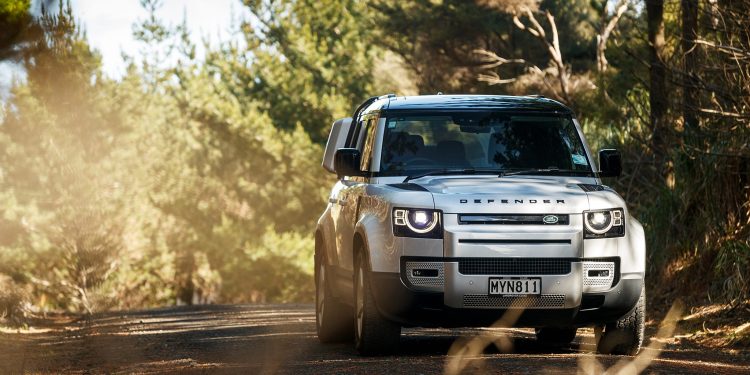Confirmed: Land Rover set to build hydrogen fuel cell Defender
After revealing that it’s set to drop diesel engines from its line-up by 2026, Land Rover has now confirmed that it’s developing a prototype Defender powered by a hydrogen fuel cell.
The model has yet to be confirmed for production, with Jaguar Land Rover instead announcing that the prototype will provide a testbed for future low-emission vehicle development.
The firm says it hopes to achieve zero tailpipe emissions by 2036 and net zero carbon emissions across its supply chain, products, and operations by 2039. To do this it’s created a new team, working under the moniker of ‘Project Zeus’.
“We know hydrogen has a role to play in the future powertrain mix across the whole transport industry, and alongside battery electric vehicles, it offers another zero tailpipe emission solution for the specific capabilities and requirements of Jaguar Land Rover’s world class line-up of vehicles,” says head of JLR hydrogen fuel cells, Ralph Clague.
“The work done alongside our partners in Project Zeus will help us on our journey to become a net zero carbon business by 2039, as we prepare for the next generation of zero tailpipe emissions vehicles.”
The announcement confirms Land Rover as one of the few European marques with a current hydrogen programme. Although the form of alternative fuel is a popular counterpoint to full electrification, only Toyota and Hyundai have hydrogen cars in production (the Mirai and the Nexo).
Land Rover describes hydrogen as “complementary to battery-electric vehicles”. While Land Rover doesn’t currently offer any full EVs, it does offer plug-in hybrids. And sister-firm Jaguar sells the i-Pace, a full EV.
Testing will commence later this year, Land Rover says. Testing will range from on-road drives to off-roading. The overarching Project Zeus is government funded via the Advanced Propulsion Centre, with Delta Motorsport and Marelli Automotive Systems also among those to assist with funding.





